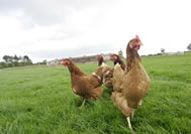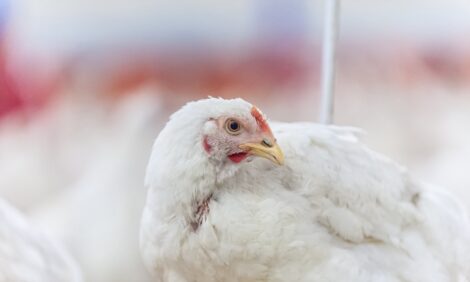



Free As A Bird: UK Hens Escape The Cage
UK - Lord Rooker, Minister for Sustainable Food and Farming and Animal Health, announced at the Egg and Poultry Industry Conference this week that the UK ban on barren battery cages will go ahead, despite opposition from many in the egg industry. |
| Chicks run free. |
Defra have confirmed that hens in Britain will at last be released from the cruelty of barren battery cages.
Compassion in World Farming Chief Executive, Philip Lymbery said:
"Lord Rooker has made a monumental decision and we cannot praise him enough for an action that will get 20 million UK birds out of barren battery cages every year. Rooker's choice to keep the ban on barren battery cages shows the British government is once again leading the way on farm animal welfare.
"British consumers don't want eggs from caged hens, as seen by the growing number of consumers spending more on free-range eggs and the government is supporting that view. Keeping hens in battery cages is simply one of the cruellest of modern farming practices and there should be no place for it in UK farming."
Barren battery cages are due to be banned across the EU from 2012 under the Laying Hens Directive but many in the egg industry and many Member States are keen to see this delayed by up to ten years.
In a recent answer to a parliamentary question, the UK government confirmed that it would support the implementation date of 2012 in EU discussions. This week it has gone even further by stating that the ban will come into force in the UK in 2012 whatever happens across the rest of Europe.
Barren battery cages confine laying hens in small wire cages with less space than an A4 sheet of paper each. These conditions cause immense psychological and physical suffering and leave hens unable to exercise or to carry out many important natural behaviours.
Recent scientific research published in the Veterinary Record found that eggs from battery cages were significantly more likely to carry salmonella than free-range or organic eggs. 23.4% of caged hens tested positive for salmonella compared to 4.4% in organic flocks and 6.5%S in free-range flocks.









